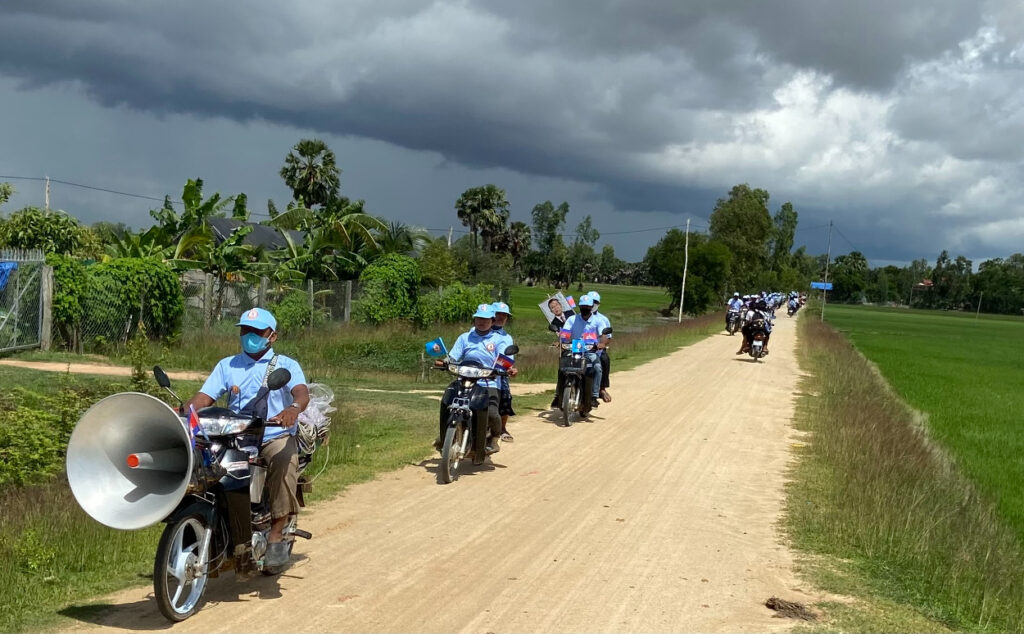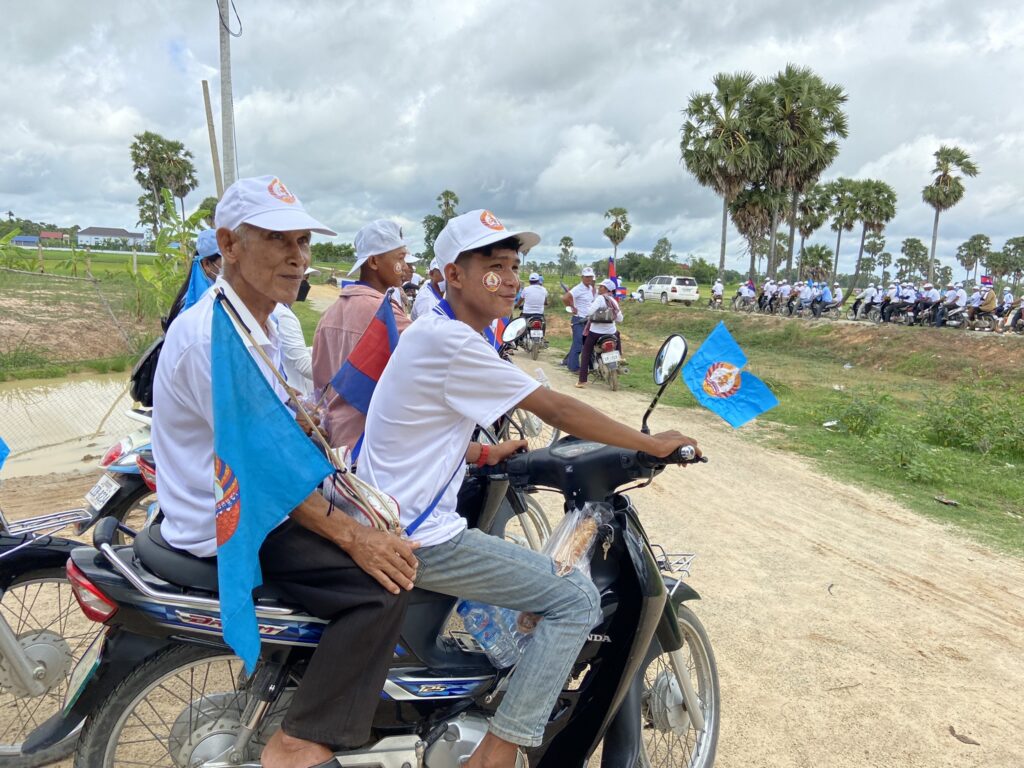Cambodia’s Strongman Tees Up a Dynastic Succession
Hun Manet, West Point graduate, is on track to succeed his father, Hun Sen, who has ruled for 38 years.

Updated at 10:30 A.M. E.D.T.
PHNOM PENH –The West Point-trained son of Cambodia’s long-serving dictator is set to win an election Sunday, a key step in his father’s plan to establish dynastic succession in China’s closest ally in southeast Asia.
At age 45, Hun Manet would give a fresh face to four decades of family rule by his father, Hun Sen, now 70 years old. In 1979, Hun Sen, a dissident Khmer Rouge commander, came to power as part of a Vietnamese-supported invasion. As prime minister, Hun Sen has ruled Cambodia for 38 years, a tenure he says is the longest in the world.
“In three or four weeks, Hun Manet can become the prime minister. It depends on whether Hun Manet will be able to do it or not,” Hun Sen said in an interview with China’s Phoenix TV that aired yesterday.
To impose North Korean-style dynastic rule on this nation of 17 million, Hun Sen has used a mix of repression, economic growth, and careful grooming of his heir. With an eye to placating the West, Hun Sen, a former communist, sent his son to West Point.

After becoming the first Cambodian to graduate from the United States Military Academy, Hun Manet went on to earn a master’s degree in economics from New York University and then a Ph.D. in economics from Britain’s University of Bristol.
On returning to Cambodia, Hun Manet methodically climbed the ranks of the Royal Cambodian Army. His responsibilities included running the presidential bodyguard unit, the Army’s special forces, and deciding on promotions of lower ranking officers. Signaling his personal control over Cambodia’s most powerful armed force, 1,000 officers attended a ceremony in April where Hun Manet was promoted to the highest rank — four-star general.
Building a civilian power base, Hun Manet became head of the ruling party’s youth wing, was elected to its elite standing committee, ran the nation’s university scholarship program, and then raised his international profile by meeting 10 foreign leaders last year. With next Sunday’s vote, Hun Manet is expected to be elected to Cambodia’s National Assembly, a post that would allow his father to appoint him as successor as prime minister.
“Hun Sen’s succession plan is nearly unprecedented in a country that has not experienced a peaceful transfer of power since its independence [from France] in 1953,” the Australia-based author of “Cambodia: From Pol Pot to Hun Sen and Beyond,” Sebastian Strangio, says. “Hun Sen is attempting to enshrine his personal political legacy through a generational transition.”
Short term, the transition may work, in part due to heavy political repression. A decade ago, in a near-death experience for the regime, the opposition probably won general elections. Massive protest rallies followed. This time, with Sunday’s general elections, Hun Sen is taking no chances. His ruling Cambodian People’s Party controls all 125 seats in the National Assembly.
A compliant court system has banned the largest opposition party, the Candlelight Party, and has shut down all independent press, including the local bureau of Radio Free Asia. Government support has gone into noisy rallies and motorcades in favor of the ruling party. Laws have been passed penalizing absenteeism and ballot spoiling.
“This is a very dangerous year for Hun Sen,” exiled opposition leader Sam Rainsy wrote in May from Paris. “It’s the year when he decided to establish a political dynasty straight after the elections,” he wrote.

The American State Department is not sending official observers to witness Sunday’s elections. Spokesman Matthew Miller said in advance: “Contrived legal actions, threats, harassment, and politically motivated criminal charges targeting opposition parties, independent media, and civil society undermine Cambodia’s international commitments to develop as a multiparty democracy.”
Helping Hun Sen is Cambodia’s geographical location in a currently authoritarian sea. Of its neighbors, Laos and Vietnam are ruled by communist parties. Myanmar and Thailand are ruled by the military. A decade ago, Western aid, trade, tourism and investment moderated Hun Sen’s hardline instincts. Today, China has replaced the West as Cambodia’s most important partner.
“Previously, Cambodia’s reliance on Western development assistance imposed limits on how far he was able to go,” Strangio said from his home in Adelaide. “China has no direct role, but it has played an increasingly important role in backstopping CPP rule over the past two decades, allowing Hun Sen to go to the lengths that he needs to – including the near-total neutralization of the political opposition – to ensure a smooth transition of power.”
Complementing repression is strong economic growth. During the 2010s, Cambodia experienced an annual average GDP growth rate of seven percent — one of the highest in the world. Still recovering from the Covid economic collapse of 2020, Cambodia is to grow by five percent this year, matching last year’s growth.
In one decade, motorbikes have replaced bicycles and smartphones have become universal. “Say what you will about Hun Sen, Cambodians are eating better and dressing better than a decade ago,” said one longtime American investor here. Without political risk to worry about, developers are dotting this capital’s skyline with high rise apartment buildings.
While the population has doubled on Hun Sen’s watch, poverty has dropped. During the 2010s, the poverty rate halved, falling to 18 percent in 2020.
With Hun Manet expected to take over as early as this fall, the question is: what kind of leader will be Hun Manet, West Point class of 1999? Two other West Point graduates from the developing world followed radically differing paths.
Fidel V. Ramos, West Point class of 1950, rose to the rank of five-star general, was elected President of the Philippines in 1992, served his 6-year term, and then stepped down.
Anastasio Somoza Debayle, West Point class of 1946, ruled Nicaragua from 1967 to 1979. He was the son of a president and the brother of a president. The deep corruption of his rule provoked a guerrilla rebellion that pushed him from power in 1979. The following year, he was assassinated in exile.

